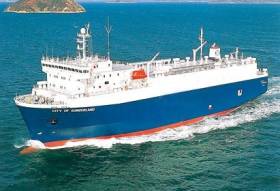Displaying items by tag: Nissan UK Remains
Nissan To Stay Decision in UK Averts 'Catastrophic' Consequences
#CarImports - Afloat earlier this month reflected on Ireland-Bristol Channel routes past and present serving the UK motor industry and of Nissan that denied speculation it would move from its major plant in Sunderland to Cork following Britain's vote on Brexit. The Japanese car-giant writes The Guardian have confirmed they will remain manufacturing in the English north-east city.
The importance of Nissan’s decision to make the new Qashqai and X-Trail models in Sunderland cannot be overstated. Since the referendum on 23 June, when 61.3% of the city’s voters opted for Brexit, a heavy air of anxiety has hung over the city, its economic future heavily tied to the car giant.
Few of the city’s politicians, voters or business leaders believed Nissan’s veiled threat that it could leave the city if it did not receive urgent guarantees from Theresa May.
After all, it is the most efficient car factory in Europe, producing 115 cars an hour – half a million a year – and is the home of Qashqais, Jukes, Notes, Leafs, Infiniti Q30s and now the new X-Trail.
Uprooting those finely-tuned production lines to Spain or Russia, where it has other factories, was almost unthinkable. “It is too big to leave,” was also a common view on the doorstep.
The Guardian has more on the story here Also to read of Dublin Port's 9.8% rise in new vehicles imports on the same period (first nine months) last year, in which demand for this trade shows little sign of abating.





























































